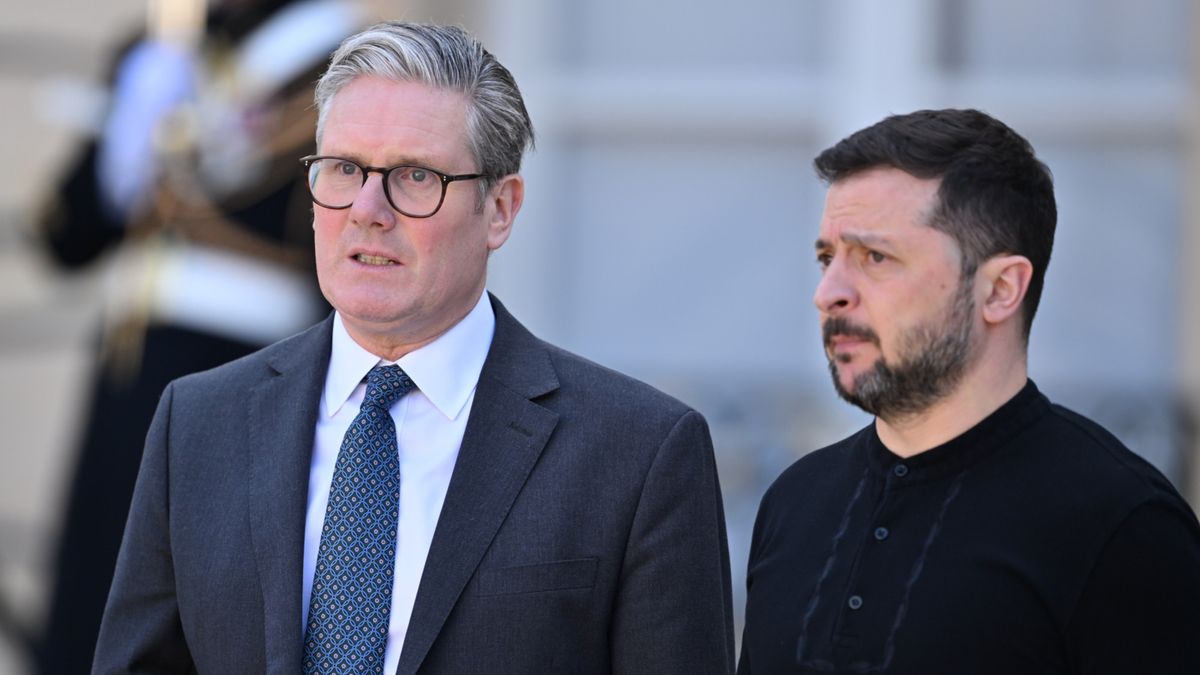Is the 'coalition of the willing' going to work?

A Precarious Peace: The Complexities of a Potential Peacekeeping Force in Ukraine
A Coalition of the Willing?
Keir Starmer, alongside French President Emmanuel Macron, has envisioned a multinational peacekeeping force to uphold a potential ceasefire in war-torn Ukraine. This "coalition of the willing," spearheaded by the UK and France, aims to be "ready to operationalise" as soon as a deal is struck. High-ranking British military officials will soon be in Ukraine to further develop these ambitious plans.
Macron, having hosted leaders from roughly 30 nations in Paris, emphasized the idea of a "reassurance force" stationed in strategic Ukrainian locations to deter further Russian aggression. However, critical questions linger, especially regarding vital security guarantees from the United States.
European Solidarity Amidst US Hesitation
Starmer's unwavering support for Kyiv has fostered a sense of unity amongst European nations, particularly as the US appears to be taking a step back. The Independent commends Starmer for providing "moral clarity" in this uncertain landscape.
However, this nascent plan faces formidable hurdles. The composition of the peacekeeping force remains unclear, with varying levels of commitment from EU members. While France stands at the forefront, countries like Hungary, Slovakia, and Croatia are less enthusiastic. Italy has explicitly voiced its opposition, with Prime Minister Giorgia Meloni deeming the deployment of European troops "risky, complex, and ineffective." The critical question of coordinating this potential EU force with NATO also requires urgent attention.
Navigating the Russian Response
"If you are talking about deploying troops to Ukraine, it is almost like they have joined Nato already," warned Lord West, former First Sea Lord and Chief of the Naval Staff, highlighting the potential for escalating tensions with Russia.
Unsurprisingly, Moscow has met the proposal with outright hostility. Con Coughlin, defence editor for The Telegraph, points out that Putin's dismissal of ceasefire proposals thus far exposes the "utter vacuity" of the coalition's plan. Furthermore, Putin has previously demanded a complete halt to international aid to Ukraine – a demand that would undoubtedly encompass peacekeepers. Securing Russian agreement for such a deployment seems highly improbable.
Political Theatre or Strategic Necessity?
Amidst growing concerns, the focus has shifted from "boots on the ground" to air and sea support, which wouldn't require a physical presence within Ukraine. A UK military source, speaking to The Telegraph, suggested that Starmer's initial pronouncements were premature, labeling the current situation "political theatre."
Yet, even air and sea support necessitate US intelligence and protection – something that remains conspicuously absent. Andrew Marr, writing in The New Statesman, argues that this supposedly independent European plan is entirely reliant on Washington, where it's facing ridicule. Deploying a substantial force, potentially involving the entirety of the British Army, risks direct confrontation with Russia – a disastrous prospect for already strained forces. Steve Witkoff, a former special envoy for Trump, dismissed the coalition's efforts as mere "posture and a pose."
A Path Forward?
As talks between US, Russian, and Ukrainian representatives continue in Saudi Arabia, aiming for a 30-day ceasefire by Easter Sunday (April 20th), the feasibility of establishing a robust support plan for Ukraine within this timeframe remains highly questionable, according to a senior Army source.
Despite the formidable obstacles, Starmer has pledged to hold a parliamentary vote on the long-term deployment of British peacekeepers and has suggested setting a deadline for Putin to sign a deal, accusing him of stalling. However, as Marr emphasizes, the Kremlin has repeatedly stated its refusal to accept any agreement involving NATO troops in Ukraine.
Russia's foreign ministry has accused France and the UK of using the guise of peacekeeping to plan a military intervention, a scenario that spokesperson Maria Zakharova described as a risk of "direct confrontation between Russia and NATO." She stated unequivocally, "Our country stands categorically against this scenario."